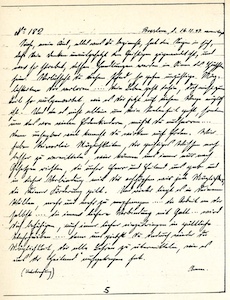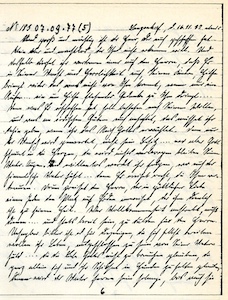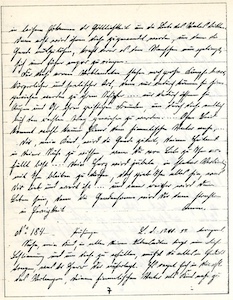B.D.-No. 1869
The human being has to have an inherent sense of justice or he would be unable to pass judgment on apparently heartless conduct. Anyone who deems himself so exalted that he will not tolerate any objection because he believes himself infallible will never think righteously either, for he does not allow others the same rights he claims for himself. A substantial difference has to be made between people. Anyone being strictly critical of himself and his actions will also always make an effort to judge other people fairly. However, anyone who only looks for faults in his fellow human beings and believes himself without error will regard all conduct from a superior point of view, and thus his judgment is wrong.
Every human being can err; every human being can make mistakes.... Yet he has to know himself, then he can fight his faults and improve himself.... But anyone who does not recognise a fault in himself will not strive for perfection either.
When he acts unkindly he will not be aware of it, he will not hold himself to account and is incapable of judging his actions fairly. He lacks a sense of justice; he will always consider his own actions beyond reproach but try to demean his fellow human being for the least mistake. It has to be clear to the human being that he has no right to accuse a fellow human being of a degrading action as long as he does not live up to a high moral standard himself. He should always consider his own shortcomings if he wants to criticise the failings of other people.
But someone with an inherent sense of justice will not hastily judge someone else, for he will try to put himself into the same situation and then also understand the failings and faults of the other person. However, in order to be able to do so he has to be truthful, he has to see things as they are.... he should not rate himself too highly and underrate his fellow human being, for then he will apply a different standard to his own faults than to the other person's faults, and that excludes all righteous thinking and judgment.
It is exceptionally valuable to firmly call oneself to account, then the human being will stay true to himself and not do his fellow human being an injustice out of selfishness by unfairly condemning his conduct and putting himself above the other person. And thus the human being should first look at himself and his behaviour before he criticises his fellow human being and elevates himself as his judge....
Amen
This proclamation is used in the following themebooks:
| Themebook | Title | Download |
|---|---|---|
| 31 | Self - denial Part 1 |
|
| 66 | Jesus' Promises: 'The measure you give will be the measure you receive' |
|
| 70/1 | Return to God Part 1 |
|
| 82 | The Beatitudes |
|
| 143 | Acquiring The Virtues |
|
| 190 | Regaining the divine qualities |
|









